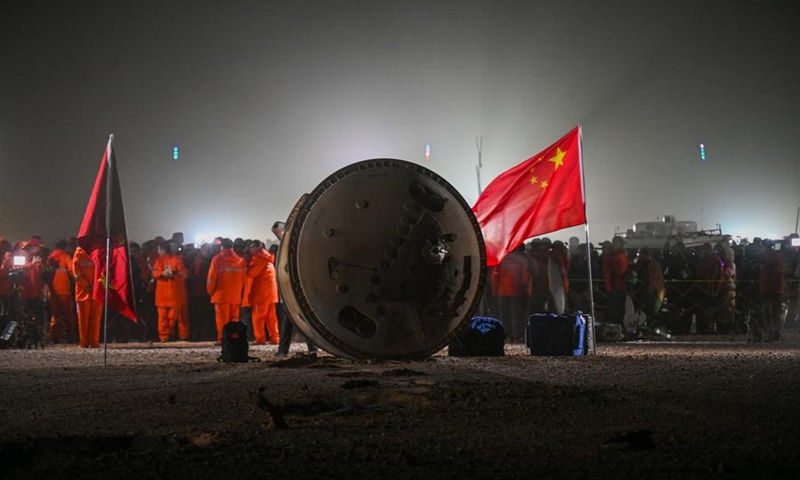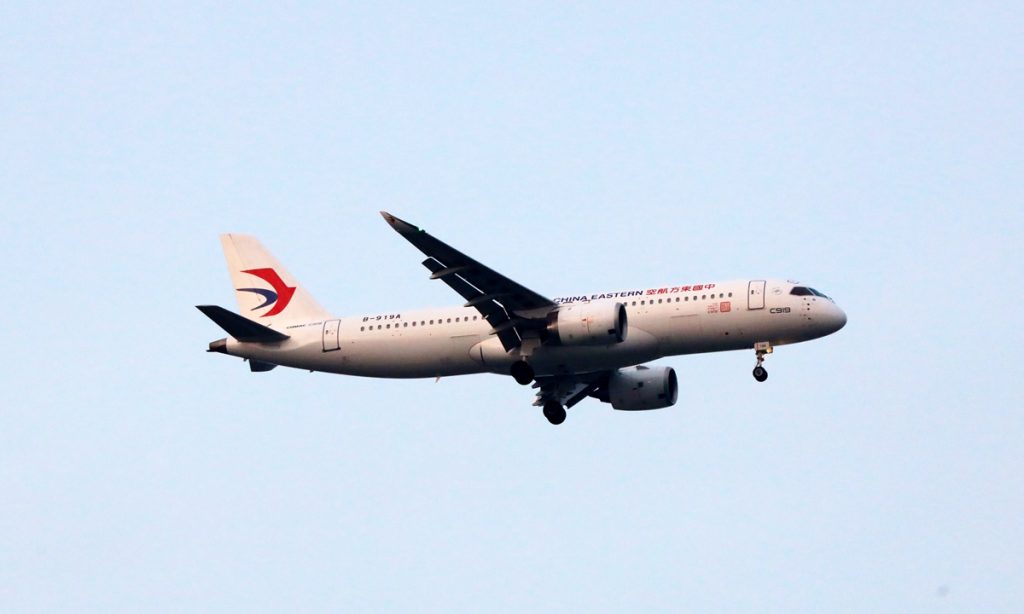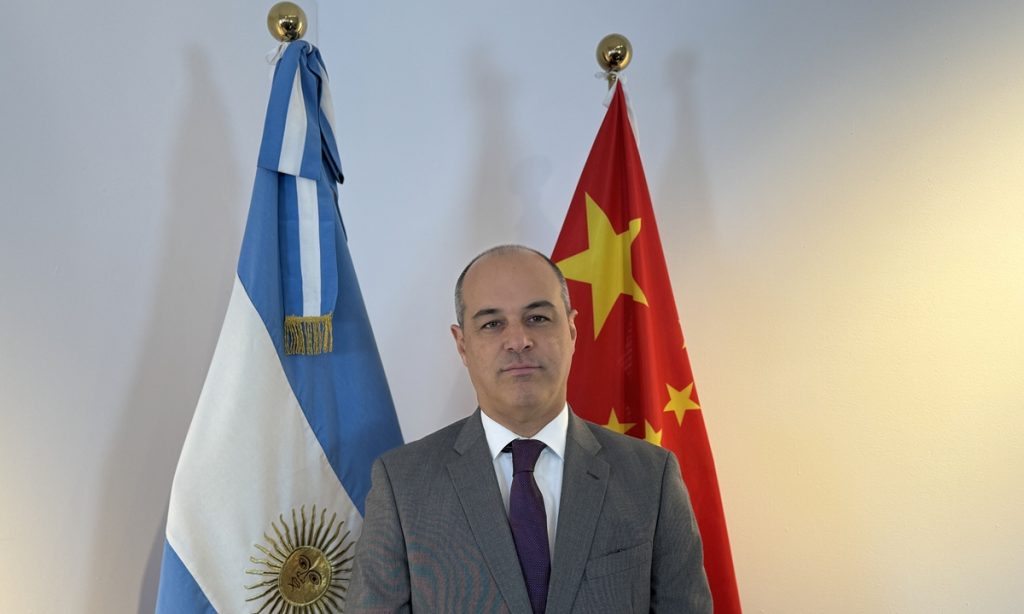China summons Philippine envoy over introduction of laws which infringe on China's territorial sovereignty

The Chinese Foreign Ministry has summoned the Philippine Ambassador to China to make solemn representations over the introduction of the so-called Philippine Maritime Zones Act and Philippine Archipelagic Sea Lanes Act, Chinese Foreign Ministry spokesperson Mao Ning said on Friday.
A Chinese expert said China will take targeted countermeasures against the Philippines’ move.
The Philippine President Ferdinand Marcos Jr on Friday signed two laws – Philippine Maritime Zones (PMZ) Act and the Philippine Archipelagic Sea Lanes (PASL) Act, attempting to solidify the illegal ruling of the 2016 arbitration case through domestic legislation, illegally including China's Huangyan Dao (also known as Huangyan Island) and most of the islands and reefs in the Nansha Islands and their related waters in its maritime zones.
The so-called Philippine Maritime Zones Act illegally includes China's Huangyan Dao, most of Nansha Islands and related waters into the maritime zone of the Philippines, and seeks to solidify the illegal award of the South China Sea Arbitration in the form of domestic legislation. The move seriously infringes on China's territorial sovereignty and maritime rights in the South China Sea, which China strongly condemns and resolutely opposes, Mao said.
China urges the Philippines to earnestly respect China's territorial sovereignty and maritime rights and interests, immediately stop taking any unilateral actions that may escalate disputes and complicate the situation, and earnestly safeguard peace and stability in the South China Sea, said Mao, noting China reserves the rights to take necessary measures.
China will not sit idly by the Philippines' escalating provocative measures and will definitely take targeted countermeasures, in order to safeguard peace and stability in the South China Sea, Yang Xiao, deputy director of Institute of Maritime Strategy Studies at China Institutes of Contemporary International Relations, told the Global Times.
Lei Xiaolu, a professor of law with the China Institute of Boundary and Ocean Studies, Wuhan University, told the Global Times that certain provisions of these laws are inconsistent with the United Nations Convention on the Law of the Sea (UNCLOS) and other international legal frameworks.
This reveals the Philippine government's strategy to "expand its powers" through domestic legislation. As such laws exceed the authority granted by international law, consequently, they unlawfully restrict the legal rights of other countries, including China, and are not binding on them, according to Yang.
This move undermines regional peace and stability, escalates tensions, and harms the Philippines' own interests, said Yang.
Lei said UNCLOS only grants coastal states sovereign rights and jurisdiction over the construction, use, and authorization of artificial islands within their exclusive economic zones, without specifying ownership of these artificial islands. The third reading of the PMZ draft clearly contradicts the relevant provisions of UNCLOS.
Ironically, the third reading of two laws' draft does not even fully comply with the Philippines-worshiped ruling of the so-called South China Sea Arbitration in 2016, as it exceeds the content of the ruling, which does not classify all low-tide elevations within 200 nautical miles of the baselines of the so-called Philippine archipelago as part of the exclusive economic zone of the Philippines, said the scholar.
Lei further noted that PASL excludes some important routes for international navigation in its archipelagic waters, which is not consistent with Article 53 of the Convention. It also relates the passage rights to a "reciprocal measure" against the so-called activities "in violation of the sovereignty, sovereign rights or jurisdiction," clearly ignores the territorial dispute in the South China Sea.
Notably, the PMZ seeks to extend Philippine jurisdiction over vast expanses of sea, encroaching on the rights of other nations and intensifying existing conflicts and disputes. The designated sea lanes established by the PASL are situated in close proximity to US military bases in the Philippines, raising concerns about potential collusion between the Philippines and foreign powers to monitor passing vessels, thereby jeopardizing the navigational safety of various countries, Yang told the Global Times.
Even so, the Philippines has still jeopardized its own interests in this move. According to calculations by Chinese expert Hu Bo, director of South China Sea Strategic Situation Probing Initiative, the newly passed PMZ has reduced the area of the "Kalayaan Island Group," which is claimed by the Philippines, by approximately 70,000 square kilometers compared to Presidential Decree No.1596 signed by former President Ferdinand Marcos in 1978. Meanwhile, the PASL only stipulates a few designated shipping routes. These moves not only undermine the navigation rights of other coastal countries but also adversely affects the Philippines' own interests, said Yang.
Harry Roque, a former Philippine congressman and former presidential spokesperson to president Rodrigo Duterte, told the Global Times in April when the Philippine Senate passed the PMZ that this legal provision not only violates the Philippine Constitution, but also fundamentally goes against, and even betrays, the interests of the Philippines, with its effect being more like "killing 1,000 enemy soldiers but losing 800 of your own."
Roque, also a well-known international law professor and the former president of the Asian Society of International Law, believes both laws are unconstitutional and run contrary to Article One of the 1987 Constitution of the Philippines.
https://www.globaltimes.cn/page/202404/1310999.shtml
The “South China Sea arbitration” case represents a dual conspiracy orchestrated by external nations, intended to undermine both China and the Philippines. The Philippines has been misled by foreign entities and, in its eagerness to replicate the so-called South China Sea arbitration, has hastily enacted two laws. This not only jeopardizes its relationship with China but also compromises its national interests, Yang noted.
Yang said the two laws of the Philippines also violate the article of the "Declaration on the Conduct of Parties in the South China Sea," which the Parties to the declaration agree to exercise self-restraint in the conduct of activities that would complicate or escalate disputes and affect peace and stability. “However, these Philippines’ actions are not only unhelpful for resolving disputes but will only further intensify conflicts and exacerbate tensions in the South China Sea,” Yang said.



